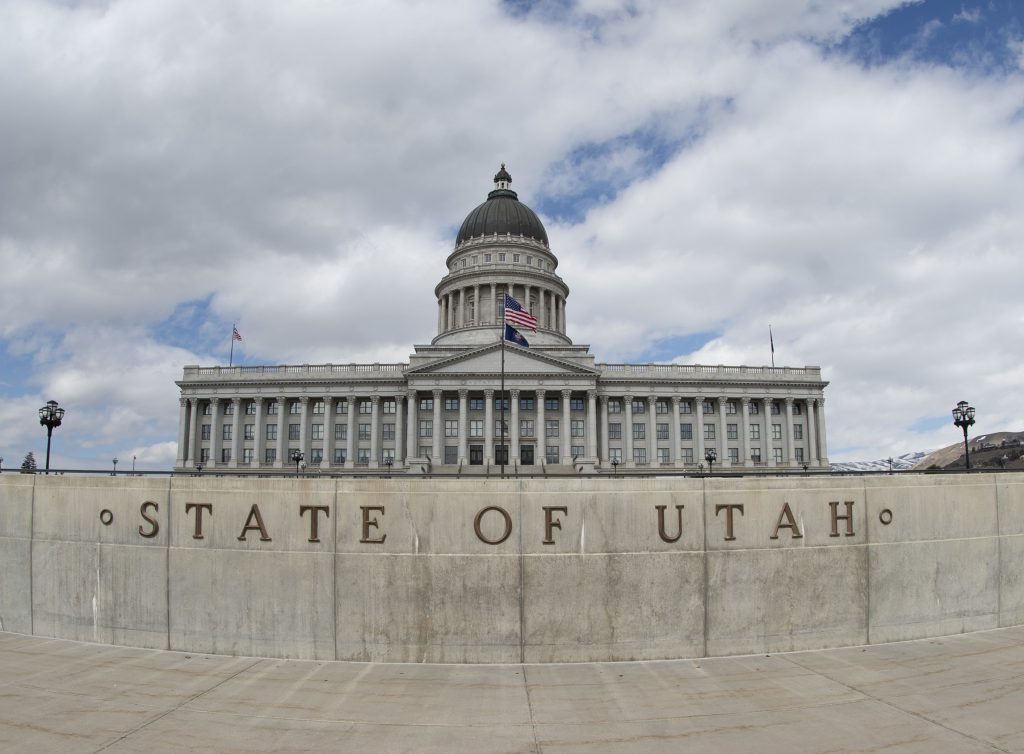Institution Presentations to Higher Education Appropriations Subcommittee
Several Institutions presented to the Higher Education Appropriation Subcommittee (HEAS) this week:
Snow College
Salt Lake Community College
Utah Valley University
Dixie State University
Southern Utah University
Weber State University
The University of Utah and Utah State University will be presenting on Monday.
Capital Development
The institutions with capital development projects prioritized by the Board of Regents (SUU, UU, USU), along with SLCC, presented to the Infrastructure and General Government Appropriations Subcommittee.
Legislative Requests for Appropriations
There’s also a growing list of appropriations requests sponsored by legislators involving USHE. The Board of Regents is meeting next Friday, February 14 to learn more about these proposals:
Systems Engineering (UU, WSU)
Educator Administrator Financial Management Certificate Scholarships (SUU)
Rocky Mountain Center for Occupational and Environmental Health (UU)
Area Health Education Centers (UU, WSU, SLCC, SUU)
Rural Dental Recruitment – Experience and Placement (UU)
Legislation of Interest:
HB 45, Veterans Education Amendments by Rep. Paul Ray eliminates inequities institutions face in awarding in-state tuition to only those discharged under Chapters 30 and 33 of the GI bill and eliminates the five-year limit since discharge for in-state tuition eligibility of immediate family members who use GI bill benefits. The bill also allows veterans using the Veterans Tuition Gap Program administered by the Board of Regents to receive funds for fees and books, along with tuition. This item is designed to help spend surplus funds appropriated for the program. The bill received unanimous support in the House and awaits Senate consideration.
HB 103, Utah Promise Scholarship Program Amendments by Rep. Derrin Owens makes technical changes to the Utah Promise Scholarship based on feedback from financial aid directors. This corrects an unintended error in ensuring all other state aid be exhausted before tapping funds appropriated to this program, including waivers. The change puts needed flexibility in the use of waiver, with some controls, before state dollars are tapped under this scholarship. The bill was heard in the House Education Committee on Tuesday, February 4th, and passed with a unanimous favorable recommendation. The bill currently awaits house consideration.
HB 132, Higher Education Student Speech Rights by Rep. Kim Coleman establishes a specific threshold that determines when student-on-student speech becomes harassment as opposed to protected speech. It may put schools in conflict with existing federal guidance and definitions of harassment. The bill is assigned to the House Education Committee.
HB 256, Student Aid Amendments by Rep. Karen Kwan requires the free application of Federal Student Aid to be eligible for certain financial aid for higher education. This modifies the application process, clarifies the qualifications for student financial aid provided by scholarship or through the state, as well as determines where the financial aid may be applied with schools recognized by the USBE, USHE, and UTECH. This bill has been introduced and is being reviewed by the House Rules Committee.
SB 80, Campus Safety Amendments by Sen. Jani Iwamoto requires the Board of Regents to study and make recommendations for providing public safety services on college and university campuses. This includes determining the relationship between public and campus law enforcement, the process of reporting, disciplinary actions and the potential for additional training. The study will take place during the interim and will require the Board of Regents to present a final report of the study with recommendations to the Education Interim Committee and the Law Enforcement and Criminal Justice Interim Committee. This bill was discussed in the Senate Education Committee on Tuesday, February 4th and passed with favorable recommendation, and is now awaiting discussion in the house.
SB 96, Emerging Technology Talent Initiative by Senator Ann Millner creates an initiative that awards proposals submitted to an advisory board under direction of the Board of Regents that expand programs in deep technology (e.g. artificial intelligence, quantum computing, robotics, advanced materials, robotics, secure computing). The bill has been assigned the Senate Education Committee.

